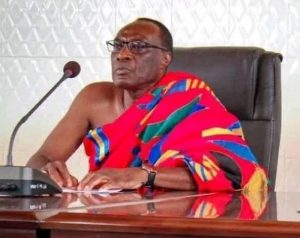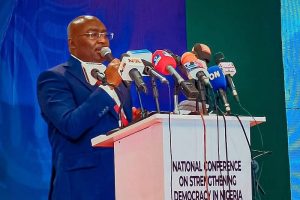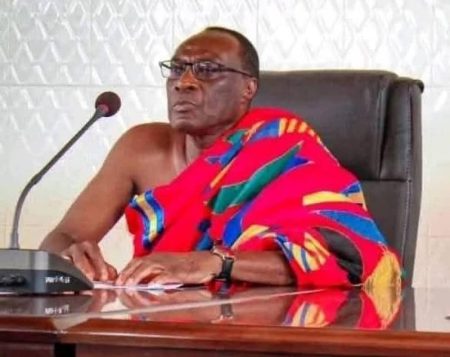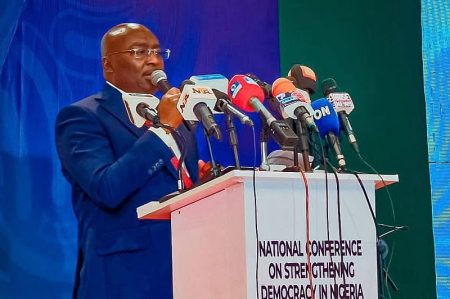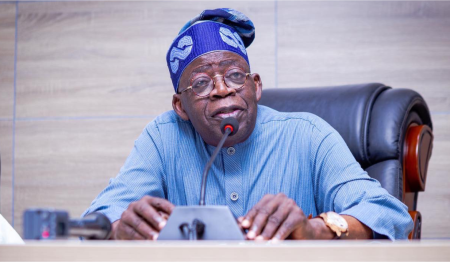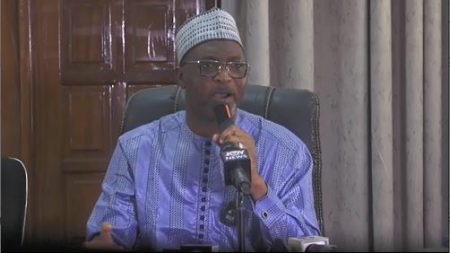The political landscape in Ghana is heating up with Dr. Ekua Amoako, the 2024 New Patriotic Party (NPP) manifesto spokesperson on health, launching a scathing critique of the incumbent National Democratic Congress (NDC) government led by President Mahama. Dr. Amoako accuses the NDC of clinging to campaign-mode rhetoric and failing to deliver on its promises to the Ghanaian people. She argues that the NDC, despite being in power for three months, continues to offer excuses instead of taking concrete action to address the nation’s challenges. This, she asserts, is a betrayal of the public trust and a sign of the NDC’s inability to govern effectively.
Central to Dr. Amoako’s criticism is the handling of alleged corruption within the National Service Authority. She specifically targets Attorney General and Minister of Justice, Dr. Dominic Ayine, for his claim that a Member of Parliament (MP) accepted a bribe to suppress an exposé on ghost names within the Authority. Dr. Amoako dismisses the Attorney General’s assertion as baseless and unsubstantiated, demanding that he provide evidence and prosecute those involved instead of resorting to what she considers political maneuvering. She challenges the plausibility of an MP single-handedly suppressing a news story, highlighting the perceived weakness of the Attorney General’s claims.
Dr. Amoako’s argument underscores a growing concern about the NDC’s governance style. She warns that relying on propaganda and excuses will not suffice in the long run. The Ghanaian people, she emphasizes, expect tangible results and concrete action, not mere rhetoric. She contends that the NDC’s continued reliance on campaign-style tactics will erode public trust and ultimately lead to their downfall. The four-year mandate, she emphasizes, is a time for action, not empty promises. The goodwill the government currently enjoys, she warns, is fragile and will dissipate quickly if not backed by tangible achievements.
The spokesperson’s remarks paint a picture of a government struggling to transition from campaigning to governing. She accuses the NDC of being more concerned with deflecting blame and maintaining a facade of progress than with addressing the real issues facing the nation. This, she posits, is a dangerous trend that threatens to undermine the progress Ghana has made. The alleged ghost names within the National Service Authority symbolize a broader issue of corruption and mismanagement that Dr. Amoako believes the NDC is failing to address.
Furthermore, Dr. Amoako’s critique highlights the importance of accountability and transparency in governance. She demands that the Attorney General substantiate his claims with evidence and pursue legal action against those implicated in the alleged corruption. This, she argues, is essential not only to uphold the rule of law but also to restore public confidence in the government’s ability to tackle corruption. The current approach, she suggests, risks creating an environment of impunity where corrupt practices can flourish unchecked.
In conclusion, Dr. Amoako’s strong words represent a significant challenge to the NDC government. Her accusations of inaction, reliance on excuses, and failure to address corruption directly question the government’s competence and commitment to serving the Ghanaian people. She calls for a shift in approach, emphasizing the need for concrete action, accountability, and transparency in governance. The coming years, she suggests, will be a critical test for the NDC, as the public will ultimately judge them not on their words, but on their deeds. The clock is ticking, she implies, and the government must demonstrate its commitment to tangible progress or risk losing the support of the people.


